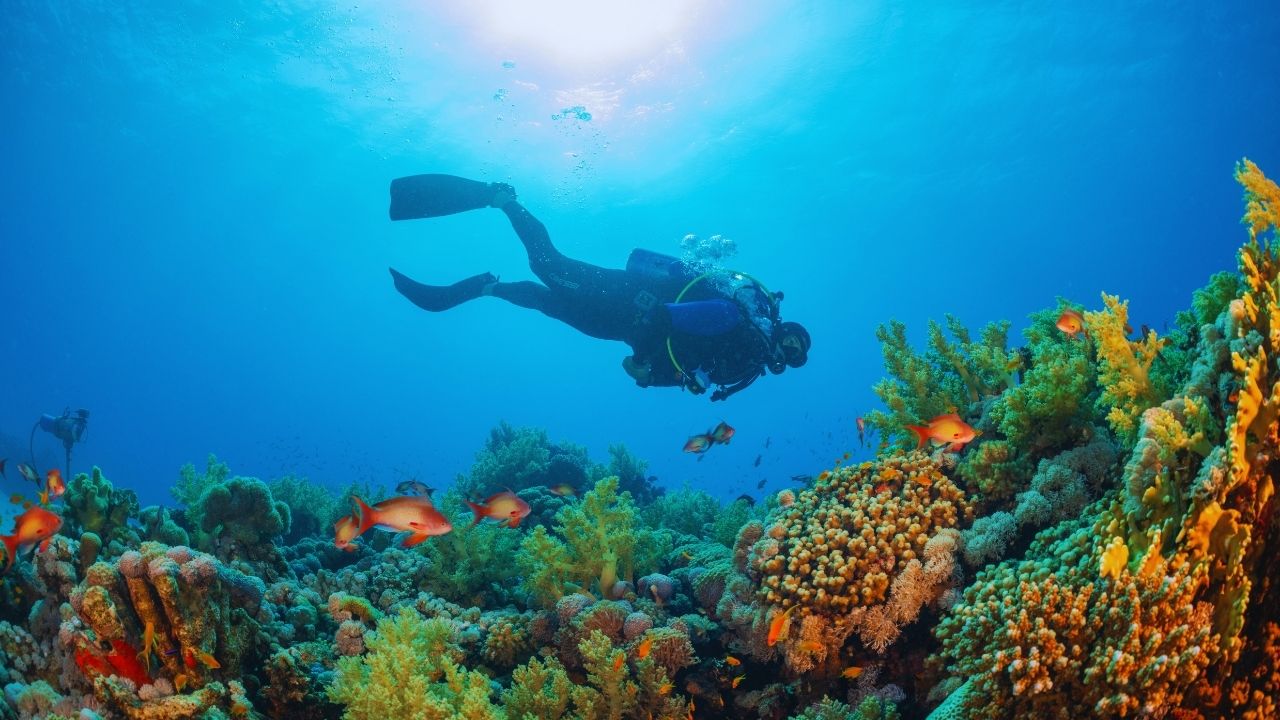
Stay Young and Radiant: 10 Vegetarian Foods That N
Discover the top 10 vegetarian foods to naturally boost collagen and stay young. Learn how plant-bas

The ocean remains one of the least explored frontiers on Earth, covering over 70% of the planet’s surface and housing ecosystems that remain largely unknown. In 2025, ocean exploration has entered a new era, fueled by advanced technologies, international collaborations, and an urgent focus on climate change and biodiversity. Recent expeditions have uncovered previously unknown species, deep-sea hydrothermal vents, and complex underwater ecosystems, offering insights into the Earth’s past, present, and future.
Exploring the deep seas is not just a scientific endeavor—it is vital for understanding climate patterns, conserving marine biodiversity, and harnessing natural resources sustainably. As humanity pushes the boundaries of knowledge beneath the waves, each discovery reshapes our understanding of life on Earth and the intricate connections that sustain it.
Modern ocean exploration owes its rapid progress to cutting-edge technology. Traditional research vessels and diving expeditions are now complemented by autonomous underwater vehicles (AUVs), remotely operated vehicles (ROVs), and advanced sonar mapping systems.
Autonomous Underwater Vehicles (AUVs): AUVs are capable of exploring extreme depths, gathering high-resolution images, and sampling water and sediments without human intervention.
Remotely Operated Vehicles (ROVs): Controlled from research vessels or land-based stations, ROVs can investigate shipwrecks, hydrothermal vents, and fragile ecosystems with precision.
Sonar and Imaging Technology: Advanced sonar mapping reveals underwater landscapes, including deep trenches, seamounts, and complex coral structures, while 3D imaging captures detailed views of previously inaccessible areas.
Environmental Sensors: Modern sensors monitor water temperature, salinity, oxygen levels, and chemical composition, providing real-time data to understand oceanic processes and climate interactions.
These innovations have transformed the scope and scale of ocean exploration, enabling scientists to conduct long-term studies with unprecedented accuracy.
Ocean exploration in 2025 has yielded astonishing discoveries that challenge previous assumptions about marine life and geology.
Recent expeditions in the deep Pacific, Atlantic, and Indian Oceans have identified hundreds of previously unknown species, ranging from bioluminescent fish to unique crustaceans and mollusks. These discoveries expand our understanding of marine biodiversity and evolutionary adaptations in extreme environments.
Bioluminescent organisms, for instance, exhibit sophisticated mechanisms to survive in the perpetual darkness of deep waters, while newly discovered extremophiles thrive near hydrothermal vents, offering potential insights into biotechnology and medicine.
Hydrothermal vents, often called “black smokers,” are ecosystems that host unique life forms independent of sunlight. Recent expeditions have located vent systems deeper than 4,000 meters, revealing entirely new ecological communities and chemical processes that may resemble early Earth conditions.
Geological surveys have also discovered undersea volcanoes, trenches, and submerged mountain ranges, providing critical information about tectonic activity and the formation of Earth’s crust.
Marine exploration has shed light on human history through ancient shipwrecks and submerged settlements. Using sonar and submersible technology, archaeologists have mapped sunken cities and lost trade routes, uncovering artifacts that reveal trade, culture, and migration patterns from centuries ago.
These discoveries are reshaping historical knowledge while illustrating how oceans preserve cultural heritage in unique ways.
The oceans play a central role in regulating Earth’s climate, and new discoveries provide invaluable data for climate modeling.
Carbon Sequestration: Scientists have identified deep-sea ecosystems that act as natural carbon sinks, absorbing CO₂ and mitigating global warming. Understanding these mechanisms is crucial for climate policy and carbon management strategies.
Ocean Currents and Heat Distribution: Mapping deep-sea currents and temperature gradients helps predict weather patterns, hurricane intensities, and long-term climate trends.
Melting Ice and Rising Seas: Exploration in polar regions monitors glacial melting, revealing the effects on sea levels and marine ecosystems.
By linking oceanic processes with global climate dynamics, marine research informs international efforts to combat climate change and protect vulnerable coastal populations.
The discoveries of new species and ecosystems have heightened awareness of marine conservation needs. Many newly identified habitats are under threat from human activities, including overfishing, pollution, and deep-sea mining.
Exploration has identified species at risk of extinction due to habitat degradation. Conservationists are working with international organizations to create marine protected areas, enforce sustainable fishing practices, and develop policies that balance resource use with ecosystem preservation.
Advanced imaging and genetic studies have led to breakthroughs in coral propagation and reef restoration, helping preserve biodiversity hotspots in tropical oceans. These initiatives not only protect marine life but also support livelihoods for coastal communities dependent on fisheries and tourism.
Ocean exploration is inherently international. Collaborative programs between countries share resources, research findings, and technology, ensuring that discoveries contribute to global marine conservation strategies.
Beyond science, ocean exploration has economic significance. The oceans contain vast resources, from minerals and rare earth elements to fisheries and potential energy sources.
Deep-Sea Mining: While still controversial, controlled exploration identifies areas rich in minerals like cobalt, manganese, and lithium, essential for batteries and electronics.
Fisheries Management: Advanced mapping of fish populations and migratory patterns supports sustainable fishing and prevents overexploitation.
Pharmaceutical Potential: Marine organisms offer unique compounds for drug development, particularly in antibiotics, anti-cancer agents, and novel therapeutics.
Responsible exploration ensures that economic benefits are realized while minimizing environmental impact.
Despite technological advances, deep-sea research faces significant challenges:
Extreme Conditions: High pressure, low temperatures, and darkness make deep-sea missions risky and technically demanding.
Limited Funding: Ocean exploration is expensive, requiring costly vessels, submersibles, and international cooperation.
Environmental Impact: Research and resource extraction must avoid damaging fragile ecosystems.
Data Management: The vast amount of data collected from sensors and imaging systems requires sophisticated processing and storage solutions.
Addressing these challenges is essential for sustainable exploration and maximizing scientific returns.
Looking ahead, the next decade promises even more groundbreaking discoveries:
Artificial Intelligence Integration: AI will enhance autonomous exploration, data analysis, and predictive modeling of marine ecosystems.
Deep-Sea Habitats: Scientists are planning submersible laboratories to study life in extreme environments over long periods.
Global Ocean Observatories: Networks of sensors will continuously monitor ocean health, climate effects, and biodiversity trends.
Sustainable Resource Management: Innovative technologies will allow for resource extraction and utilization without compromising ecological balance.
The ocean remains a final frontier, offering knowledge, innovation, and inspiration for humanity’s future.
Ocean exploration in 2025 is redefining how we understand Earth’s final frontier. From discovering new species and hydrothermal vents to mapping submerged landscapes and supporting climate research, the deep seas are a treasure trove of scientific, cultural, and economic value.
As technology advances and international collaboration grows, humans are not only uncovering the mysteries beneath the waves but also learning to protect and sustain the ocean’s invaluable ecosystems. Every discovery reminds us of the interconnectedness of life on Earth, the fragility of marine environments, and the limitless potential of exploration.
World Ocean Awareness and research efforts continue to inspire generations to think beyond the shore, ensuring that the oceans remain a source of knowledge, wonder, and life for centuries to come.
This article is for informational purposes only. It highlights the importance of ocean exploration, recent discoveries, and scientific implications. Readers should consult professional research and scientific publications for detailed technical data.